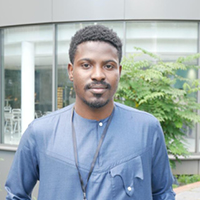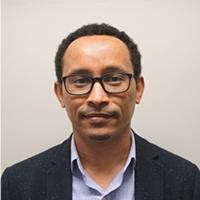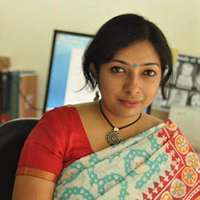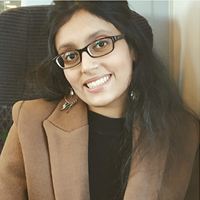 Kalle Hirvonen | Chair
Kalle Hirvonen | Chair
Kalle Hirvonen is a development economist and a Senior Research Fellow at the International Food Policy Research Institute (IFPRI). Kalle’s current research seeks to understand how to sustainably improve nutrition and food security outcomes in low-income countries. His recent research has focused on social protection, early childhood development, food systems, value chains, and food markets. Kalle has extensive field work experience from Ethiopia and Tanzania where he has been involved in implementing a number of large longitudinal household surveys.
 Akim Al-Mouksit | Presenter
Akim Al-Mouksit | Presenter
Al-mouksit Akim is currently an Assistant Professor in Economics within the Faculty of Governance, Economics, and Social Sciences of Mohammed VI – Polytechnic University (UM6P). He is also a Research Associate at DIAL-IRD where he works on a project in line with the distributive effect of fiscal policies in 3 West African countries. He has initiated a research project funded by the Partnership for Economic Policy research network (PEP research network) and has published in high ranked journals in development economics.
 Kibrom Tafere Hirfrfot | Presenter
Kibrom Tafere Hirfrfot | Presenter
Kibrom Tafere is an Economist in the Sustainability and Infrastructure Team of the Development Research Group. His research focuses on the welfare effects of environmental shocks, access to infrastructure and conflict; social safety nets, food security and agricultural productivity; and human capital development. His research covers a range of middle income and developing countries including Brazil, Ethiopia, India, and Uganda. He holds a PhD in Applied Economics from Cornell University.
 Saifa Raz | Presenter
Saifa Raz | Presenter
Saifa Raz is a statistician, currently holding the Research Fellow position in BRAC James P. Grant Public Health School, BRAC University. She is particularly proficient in statistical inference and sampling design with experience on the issue of food security, maternal and child health, gender and SRHR, etc. She graduated with a Master of science from University of Dhaka, Bangladesh and another from University of Calgary, Canada.
 Kritika Singh | Presenter
Kritika Singh | Presenter
Kritika Singh graduated as Master of Public Administration with a Distinction from the University of Birmingham in 2020. She achieved a first-class degree in production technology from India’s National Institute of Fashion Technology. Her research interests have led to a focus on public leadership and management. She has worked in the digital media space in India and the UK and volunteered at organizations in the social development sector of Birmingham, Manchester, Kolkata, and New Delhi.
William Seitz | Presenter
William Seitz is a Senior Economist and team leader for the Poverty and Equity Global Practice of the World Bank in Central Asia, based in Almaty, Kazakhstan. His areas of expertise include poverty measurement, small area estimation, labor market analysis, and survey methods. Before joining the World Bank, William worked as a Research Officer at the Centre for the Study of African Economies at the University of Oxford. William holds an MBA from the University of Denver and a PhD in Economics from the University of Milan.
 Join the network
Join the network Kalle Hirvonen | Chair
Kalle Hirvonen | Chair Akim Al-Mouksit | Presenter
Akim Al-Mouksit | Presenter Kibrom Tafere Hirfrfot | Presenter
Kibrom Tafere Hirfrfot | Presenter Saifa Raz | Presenter
Saifa Raz | Presenter Kritika Singh | Presenter
Kritika Singh | Presenter